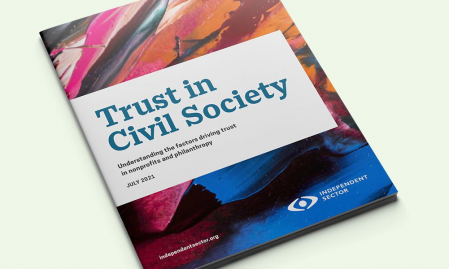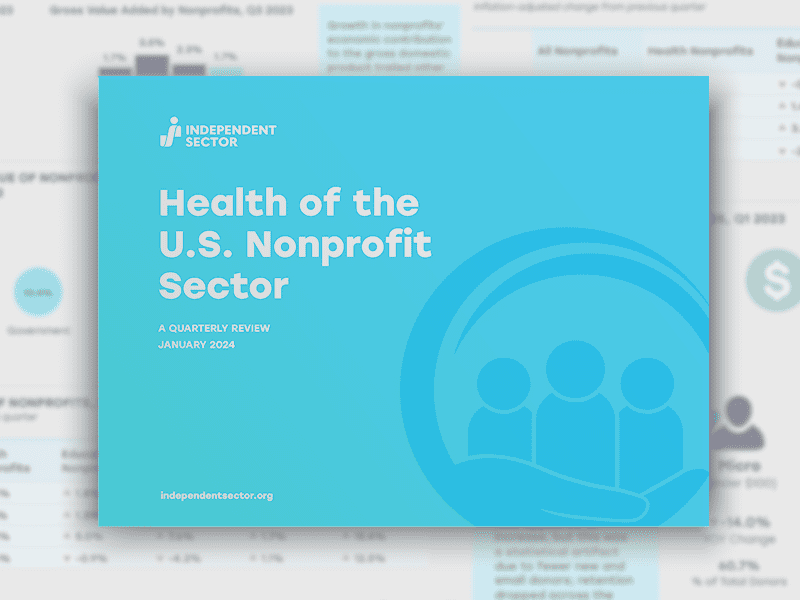Public trust is the currency of the nonprofit sector. The public’s belief that nonprofits will “do the right thing” is one of the central reasons the sector exists. Communities have relied upon nonprofits to provide trusted sources of information, life-sustaining services, environmental stewardship, and places of refuge for centuries. In today’s highly polarized environment, understanding and managing trust has never been more important for organizations to own their license to operate, lead, and succeed. Given the outsized importance of trust, it is imperative to assess the status of that trust and how the sector can strengthen our most valuable asset.
Independent Sector, in partnership with Edelman Data & Intelligence, is releasing this second annual report of survey findings that explore the nuances of trust in American nonprofit and philanthropic organizations. Building on Independent Sector’s four decades of bringing together the charitable community for the common good and Edelman’s experience studying trust in both the global and U.S. context, we set out to conduct two national surveys, totaling 8,000 American adults, to assess general population trust in the sector (philanthropy and nonprofits) and uncover the factors that drive trust in the sector.
Revised 7.23.21: The report has been revised to accurately distinguish between percent and point changes in responses.



